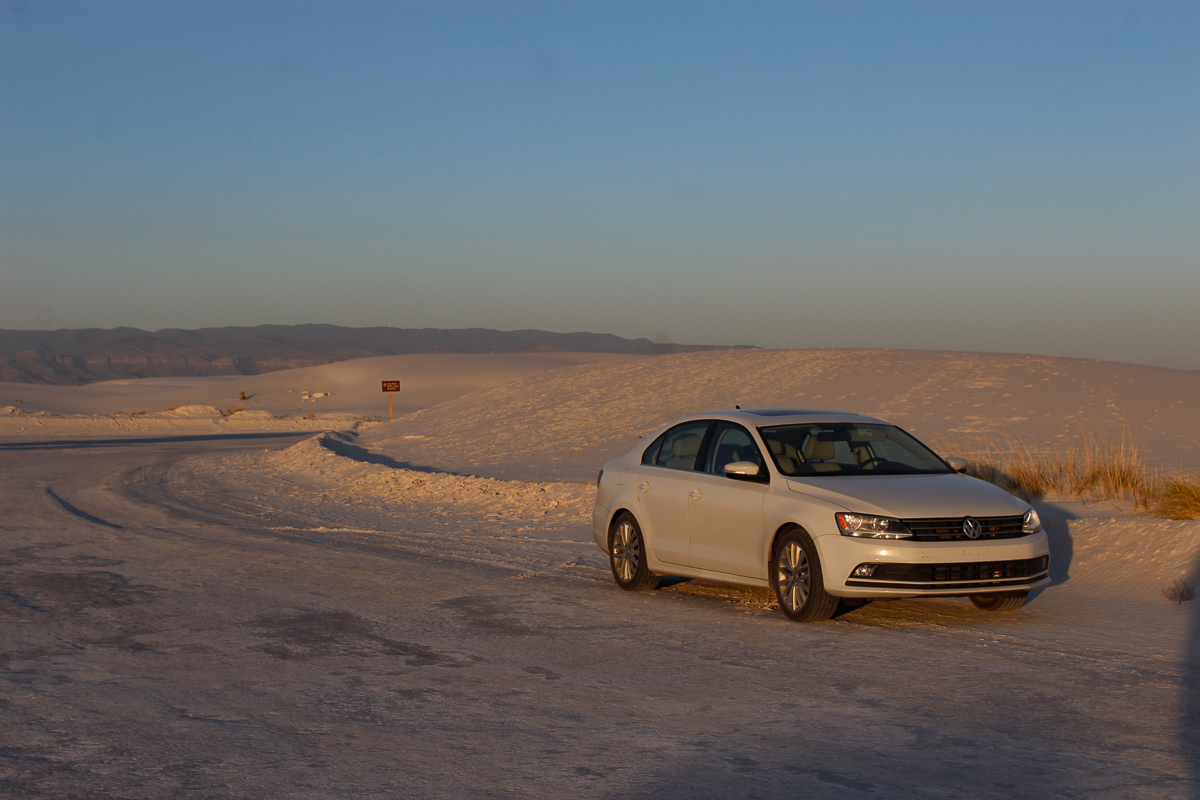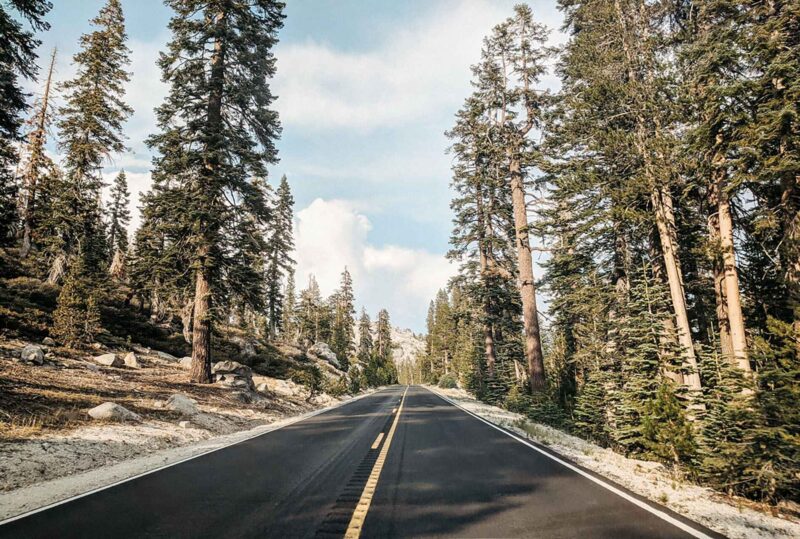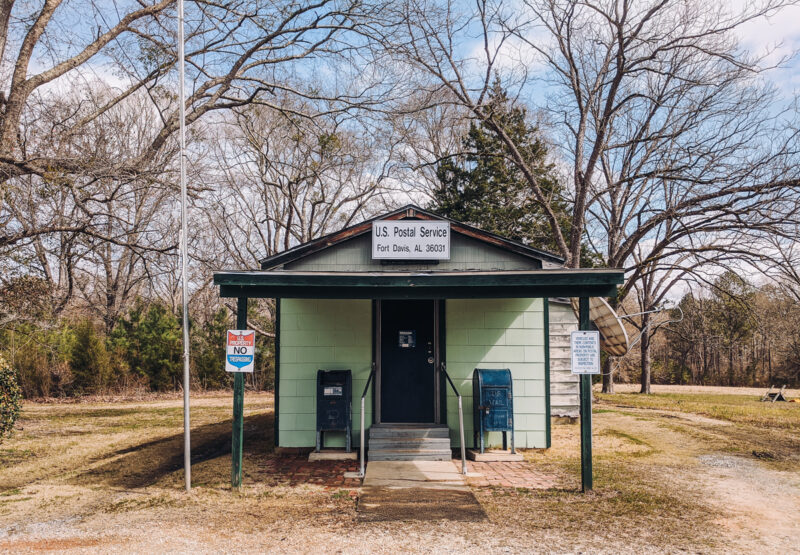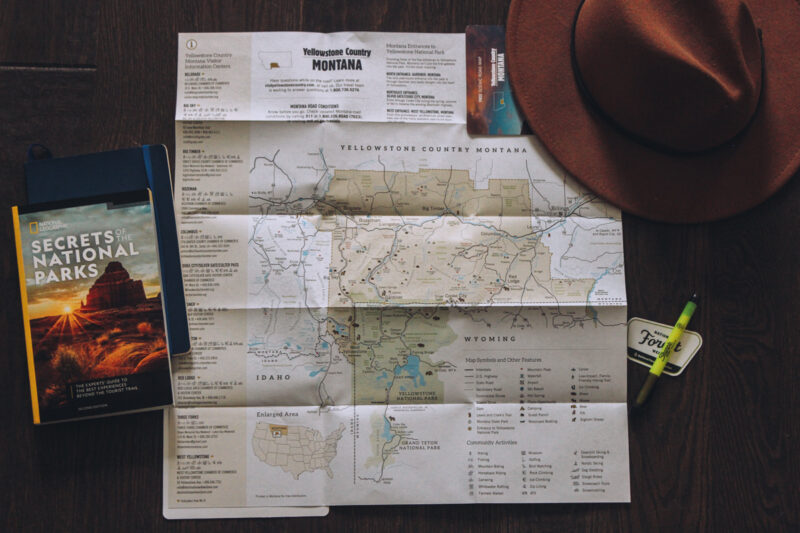What Should I Check on My Car Before a Road Trip? 12 Key Items
Road trips are one of the best ways to see the USA but before you pull out of the driveway, it’s essential that your vehicle is in tip top shape. Especially for long-haul or cross-country road trips. Since traveling by road often involves long distances, ensuring your car is in good condition reduces the risk of mechanical failures. So, you might be asking, just what should I check on my car before a road trip?
Let me help you with that! As a former automotive shop owner, and someone who’s logged well over 100k miles of solo road trips, I’m serious about routine car maintenance and avoiding costly on-the-road repairs. There’s nothing like being at the mercy of a repair shop in an unknown town, stuck in a hotel to ruin a road trip. Here are 12 things you should always check on your vehicle before hitting the road.
This article contains affiliate links. That means I may receive a commission, at no extra cost to you, if you book or buy something from a link I provide. This keeps Southerner Says online and on the road. Thank you for your support.
Importance of Car Maintenance Before a Road Trip
Inspecting your vehicle regularly minimizes the chances of unexpected breakdowns and provides peace of mind knowing that you checked everything you could before your trip. Also, addressing small issues before they turn into big things can save you from spending a lot of money later. The list of items to check on your vehicle doesn’t have to be complicated but definitely start with these.
1. Tires
Tires tend to be something we don’t really think about much until there’s an issue but checking your tires and maintaining the proper pressure in all four of them is crucial for several reasons.
First, it directly impacts the safety of your road trip. Underinflated tires can lead to poor handling, reduced traction and an increased risk of accidents, especially during emergency maneuvers or in rain. If you’ve ever had that floaty feel when turning or in a curve then chances are your tires are low.
On the other hand, overinflated tires can cause the tires to wear unevenly, reducing their contact with the road and potentially leading to blowouts which could cause an accident. Ensure your tires are properly inflated according to the manufacturer’s recommendations
Additionally, having the correct tire pressure also affects fuel efficiency. When your tires are properly inflated, your vehicle’s engine doesn’t need to work as hard to move the car. This results in better fuel economy and saves you money on gas during your road trip.
Before you go on your trip, check the tire pressure and inspect the treads for any signs of wear or damage. Also, if it’s time for a rotation then do that before you leave as well. That gives a technician a good opportunity to inspect your tires for hidden issues.
2. Fluid Levels
Checking the levels of all the vital fluids such as engine oil, coolant, brake fluid and windshield washer fluid is very important. Engine oil lubricates the moving parts and reduces friction. Without sufficient oil, your engine could suffer from excessive wear and tear, leading to breakdowns and expensive repairs.
Coolant is equally important, especially when driving in heavy traffic or during hot summer trips like visiting Death Valley National Park or desert climates. Coolant regulates the engine’s temperature, prevents overheating and keeps your car’s performance at its best. Neglecting coolant levels could result in engine overheating, which could cause severe engine damage.
Brake fluid is another critical component of your braking system. It’s responsible for transmitting the force you apply on the brake pedal to the actual brakes. Low brake fluid levels can compromise your braking performance. This means taking longer to stop and ultimately crating a hazardous driving condition.
Windshield washer fluid might not seem that important but it significantly contributes to your visibility on the road. When you road trip and travel long distances, dust, dirt, and bugs (icky) can quickly obstruct your view. Adequate washer fluid ensures you can keep your windshield clean and improves your ability to see the road clearly and stay safe.
3. Battery
Verifying that the battery in your vehicle is charging correctly is an important step before setting out on a road trip. Just as your body can’t function without a heart, without a well functioning battery, your car won’t either. If it’s having issues starting the vehicle, that means you could get stuck somewhere.
Imagine being stranded on a desolate stretch of highway with no cell service, waiting for a tow truck to arrive. Not exactly the road trip memory you were hoping to make, right? A weak or failing battery can affect many of the other electrical components in your car. By taking a few minutes to check your battery before you hit the road, you can avoid trouble.
When inspecting your battery, you should look for any signs of corrosion on the terminals and make sure they’re tightly connected. If you already know your battery is old and it’s been showing signs of weakness, like slow cranking or needing frequent jumps, it might be time for a replacement. Remember, prevention is key when it comes to your battery. Don’t wait until it’s too late.
4. Spare Tires & Tools
The spare tire and tools are probably something else you never think about either – until you need them. Then they are the absolute lifesavers to changing your tire. Before you need them, familiarize yourself with the location of the jack, lug wrench, and any other tools necessary for changing a flat. Some cars may require special tools to remove the lug nuts so make sure those are in the vehicle.
Having a good, working spare tire on hand is your ticket to getting back on the road and continuing your adventure without skipping a beat. Without them, you could find yourself stranded on the side of the road, waiting hours for assistance to arrive. And those costs add up quickly, putting a serious dent in your road trip budget.
Southerner Says: If you replace the tire with a smaller donut spare, make sure to follow the manufacturer’s recommendations and avoid driving over the suggested distance and speed limits. Also, make sure that spare is properly inflated.
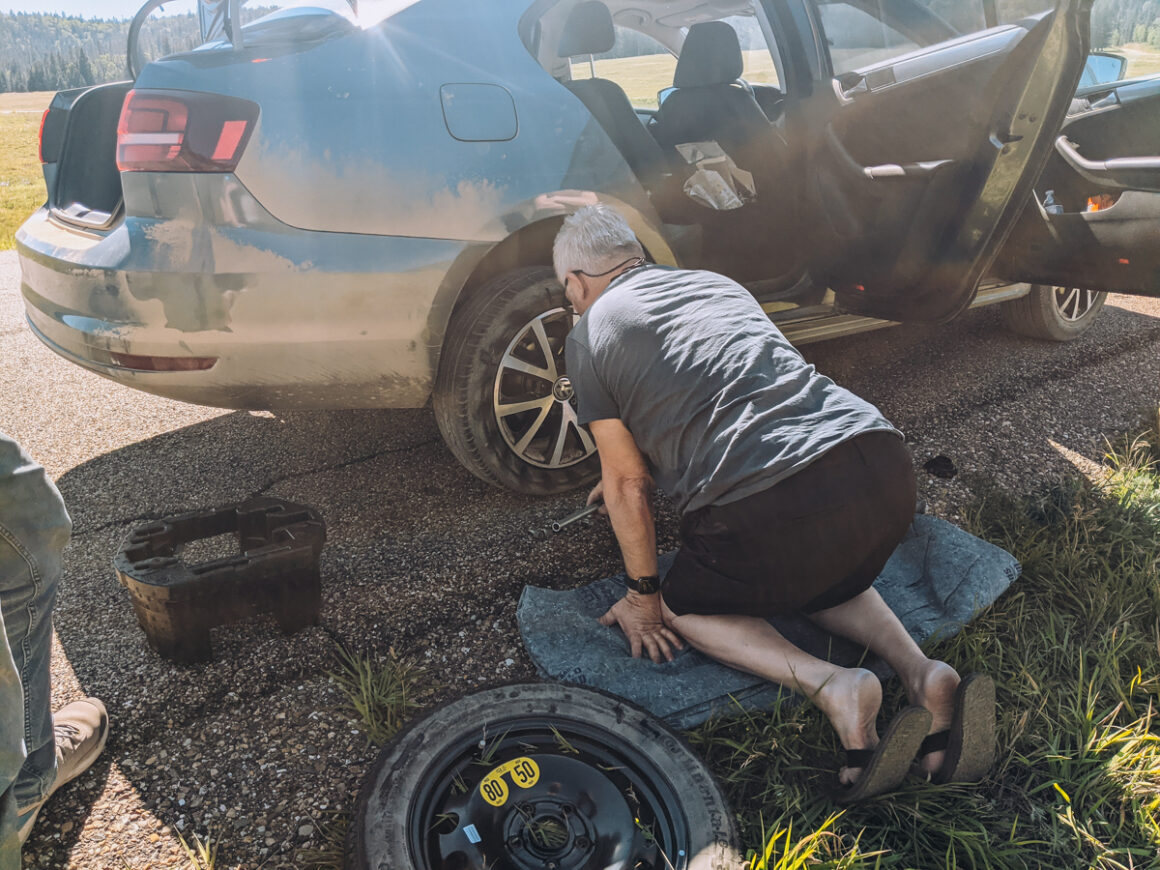
5. Brakes
Brake are one of the most vital components of your vehicle, especially when gearing up for an unforgettable road trip. Brakes are your best friend, bringing your vehicle to a safe stop and preventing potential collisions.
But brakes aren’t just about stopping – they’re also about control and confidence. Whether you’re navigating winding mountain roads or bustling city streets, reliable brakes give you the peace of mind to tackle any driving situation with ease.
Brakes need a little love to perform their best. Before setting out on your road trip, it’s essential to give your brakes a thorough check-up. You can do this by listening for any telltale signs of wear, like squeaking or grinding noises and pay attention to how your brake pedal feels – it should be firm and responsive to your touch.
If you notice any issues with your brakes, it’s crucial to address them promptly. Ignoring brake problems can lead to more significant issues down the road, not to mention compromising your safety and the safety of others on the road.
6. Lights
Lights on our vehicles are so crucial because they illuminate our path and keep us safe on the road. While they may often go unnoticed, they play a vital role in ensuring a smooth and secure journey, especially during those twilight hours or when navigating unfamiliar territory.
And don’t forget about taillights and brake lights that silently alert others to your movements and intentions. In heavy traffic or adverse weather conditions, these lights are critical, helping to prevent rear-end collisions and keep traffic flowing smoothly.
You might think that only the headlights and brake lights are important but actually they are just the beginning – there’s an array of lights at play in your vehicle, each with its own important role to play. From the comforting glow of your dashboard indicators to the friendly wink of your turn signals, these lights communicate vital information and help you navigate the road with confidence.
Of course, like any other component of your vehicle, lights require regular maintenance to ensure they’re shining bright when you need them most. Before embarking on your road trip, take a moment to inspect all your lights, ensuring they’re clean, functional, and properly aligned.
7. Wiper Blades
Like the tires and tools, windshield wipers are something that you don’t give much thought to until you need them and then when they aren’t properly doing their job, it’s frustrating. Who hasn’t had those wipers that make an irritating noise that you forget about as soon as it stops raining?
That’s why it’s so important to check your wipers and make sure they are in good condition and that they can effectively clean the windshield. Replace them as soon as possible if the blades are worn out or make any noises.
Automotive stores like Pep Boys, Advance Auto Parts and O’Reilly’s can make recommendations for good blades and in some cases, will even swap them out for you. However, knowing how to do it yourself is not a bad idea at all.

8. Belts & Hoses
Under the hood of your car, inspect the engine belts and hoses for signs of wear, cracks, or leaks. If you notice any issues, have them replaced by a mechanic to prevent potential breakdowns. If your feel this check-up is a bit too complicated for you, then again, many automotive shops will offer a free inspection with a purchase.
If your vehicle is nearing its next oil change, it’s an opportune moment to bundle that service with a full vehicle inspection. Not sure where to take it? Just Google shops in your area with good reviews or you can also use a service like AAA or your local Better Business Bureau to search. Honestly, the best way to find a good shop and knowledgeable technician is by word of mouth.
9. Air Conditioning and Heating
Your car’s AC and heating aren’t the most important components for car functionality, but they are necessary for a comfortable and enjoyable journey for both the driver and the passengers. Testing the air conditioning and heating systems to ensure they are working correctly is a smart thing to do before you go on a road trip.
Any noises, or issues when you turn the fan on, or problems with cooling should be addressed before you begin your travels. Most of the time, an AC or a heating failure won’t leave you stranded but it can make for an extremely miserable ride.
Thankfully, in all my travels, I’ve avoided any real serious mishaps on the road but there were two, yes two times, my AC went out in Florida of all places. Granted, there was no advance warning but if there had been anything I could have done to avoid that scenario in a hot, humid Florida July, I would have done it.
10. Emergency Kit
Not having a stocked emergency kit with essential items is one of those mistakes you don’t want to make on a road trip. Important items such as a first aid kit, flashlight, extra batteries, roadside flares or reflective triangles, jumper cables or a jump box and basic toolkit with a tire gauge are a must.
It’s also a good idea to include phone chargers, extra water, some non-perishable snacks, and a blanket or extra warm clothing in case of unexpected delays or emergencies. And it’s not a bad idea to have extras of any medications you might regularly take.
By having these items, you’ll be better prepared for any unforeseen circumstances and emergencies that could happen during your road trip. And they do happen. Every winter there’s numerous reports of people getting stranded in their cars in winter weather.
11. Correct Paperwork
No, it’s not maintenance but double checking that you have the correct paperwork in your vehicle is very important for a road trip. Registration, insurance papers, that you might be legally obligated to share, are a must. Even though, most states accept digital copies of insurance, what happens if you are somewhere with no cell service?
It’s best to just make sure you have a include a hard copy on hand and be ready for anything. I experienced an uncomfortable ten minutes with Texas Highway Patrol one time when I couldn’t locate my paperwork. I never want to do that again.
12. Key Fob Battery
Nowadays, instead of a traditional key, most newer cars come with key fob that allows you to electronically unlock ad start your vehicle. Many vehicles don’t require the fob at all, and you only have to touch the door handle to unlock the vehicle with the key nearby.
Like a lot of the little things in life, these fobs are powered by batteries – small round batteries called button cells. So what happens if your battery, or button cell, on your key fob dies? Will you be locked out of your car? You could be. It depends on your vehicle. Most vehicles have a fail safe for unlocking and starting your vehicle with a dead fob. You’ll find plenty of articles and how-to videos online for every make and model.
The good news is those batteries usually don’t die without warning. So, as long as you follow-up on the low battery signals that the fob is sending – like needing multiple clicks to work or a warning that the key is not detected even though it’s right there, then you should be okay.
The smartest thing to do is add changing your key fob battery to your what should I check on my car before a road trip list and do it before you have to. The batteries are readily available at just about any store like Walmart or Target, or automotive parts stores. They come in packs so it’s easy to keep some on hand for when there isn’t a store around. Just make sure you can get to them.
What Should I Check on My Car Before a Road Trip Conclusion
Now that you’ve read through the list, there’s no more wondering about what should I check on my car before a road trip. With this list you have a pretty good start on the basics of car maintenance. Since taking a road trip is one of the best ways to see the United States, or even another country, make sure all your memories are good ones by doing a bit of routine inspection and maintenance before you set out on your road trip. You’ll be glad you did.
See you on the road!


